
Imagine that you’re at a basketball game, and a player on the opposing team shoots and airballs it. They miss the rim, the backboard, everything. If you’ve ever watched basketball before, you know that’s your cue to chant “air-ball, air-ball!” Everywhere you go, chants like this are commonplace at sporting events. That is, everywhere except Wisconsin.
In December, the Wisconsin Interscholastic Athletic Association (WIAA) emailed high school athletic directors around the state, encouraging them not to tolerate “unsportsmanlike” cheers and “disrespectful” conduct by student sections. The email came after a supposed uptick in the use of these cheers. Among the chants included in the email were “air-ball,” “scoreboard” and “you can’t do that.” Actions like turning away during opponent’s pre-game introductions and trying to distract opponents while they shoot free-throws were also mentioned.
Todd Clark, a spokesperson for the WIAA, issued multiple statements clarifying his organization’s position. For one, these cheers are not banned, as many headlines about the controversy would have you believe. Rather, the WIAA’s intent is to set a goal for schools to strive for, and they hope that administrators who witness such conduct from their student sections will reprimand students in an effort to rid events of “poor sportsmanship.” Clark added that the WIAA is not instituting any new policies at this time, but is simply reminding schools of policies already in place.
While the cheers are not specifically banned, the incident has spurred a lot of conflict around the country. ESPN personality Scott Van Pelt began his critique on “One Big Thing” by striking a sarcastic tone. Van Pelt mocked the rules, saying “we’ve got spirit yes we do. We’ve got spirit, how ‘bout you? Oh, I’m sorry. You don’t have spirit? How insensitive of me to inquire at this sports contest about your spirit.”
Analyst Jay Bilas took to Twitter to give examples of “acceptable” chants. One read: “We cannot in good conscience pretend we want you to make this, but wish you good luck, nonetheless.” The actions of the WIAA have also prompted many student sections to protest by coming to games with duct tape over their mouths reading “Is this approved?” In fact, one would be hard-pressed to find any news coverage in favor of these conduct suggestions.
Overall, the reaction to this controversy is that Wisconsin’s attempt to regulate fan conduct at sporting events for fear that cheers might hurt a player’s feelings is just another example of the coddling of young adults in an environment where it isn’t needed. No matter what their reason is for playing, students involved in sports know that it is a competition. They know that when a crowd cheers it isn’t personal, nor is it actually all that important. Many players don’t even hear what is being said in the crowd.
To say that cheers that have been chanted at every level for years are suddenly causing irreparable harm to player’s egos is simply dramatic. Yes, it is embarrassing when a crowd chants “air-ball,” but it also should be embarrassing to air-ball a shot. Similarly, hearing the sound of keys jingling with a crowd yelling “start the bus” when you’re down by 20 points is demoralizing, but if that implores a team to work harder so it doesn’t happen again, then haven’t they benefitted in the end?
Players are not feeling attacked or personally victimized by a crowd’s cheers. In fact, one varsity player at a high school in Wisconsin was given a suspension for tweeting her disapproval at the WIAA’s attempts to regulate cheers. The WIAA is concerned with the supposedly fragile feelings of athletes, but these goals for sportsmanship were not prompted by any complaints of unsportsmanlike conduct, only by an apparent increase in their usage at sporting events.
All of this prompts the question, when does a cheer or an action stop being a part of the game and become unsportsmanlike conduct? Macalester is known for many of our cheers, most infamously, “Drink blood. Smoke crack. Worship Satan. Go Mac!” It has been a part of the Macalester community for upwards of twenty years, and is described by many as a key part of the experience of going to a Mac soccer game. However, there is a history of Macalester students approaching the administration about banning the cheer. Despite some attempts by the athletics administration to enforce regulations on cheers, they are still widely used at soccer games. Inevitably, someone will suggest a rousing rendition of “If you can’t be a Scot, be a Tommie” and “sportsmanship” will fall apart from there.
Many other cheers commonly heard around Macalester sporting events are also considered part of the Macalester athletics experience. Should cheers be abandoned in an attempt to create a more docile environment that is more welcoming to opposing teams? Or does this defeat the purpose of going to a game at all? Those students up in the stands chanting “We’ll be running around St. Thomas with our willies hanging out” would most certainly be considered unsportsmanlike by the WIAA’s standards, but to many Mac students, singing and chanting at games is one of the big reasons to attend.
For all the good intentions that come with the WIAA’s suggestions on sportsmanlike conduct, their fears are generally unwarranted. An active, engaged crowd can make a close game that much more exciting, or it can make a blowout more entertaining. Similarly, a silent crowd is less fun to play for, and can make a game less fun to watch. If the WIAA were banning off-color chants or personal, bullying attacks on individual players, that would be one thing, but cheers that have been established as a part of a tradition in sports are neither harmful nor offensive, and should be left alone to remain a part of a crowd experience.

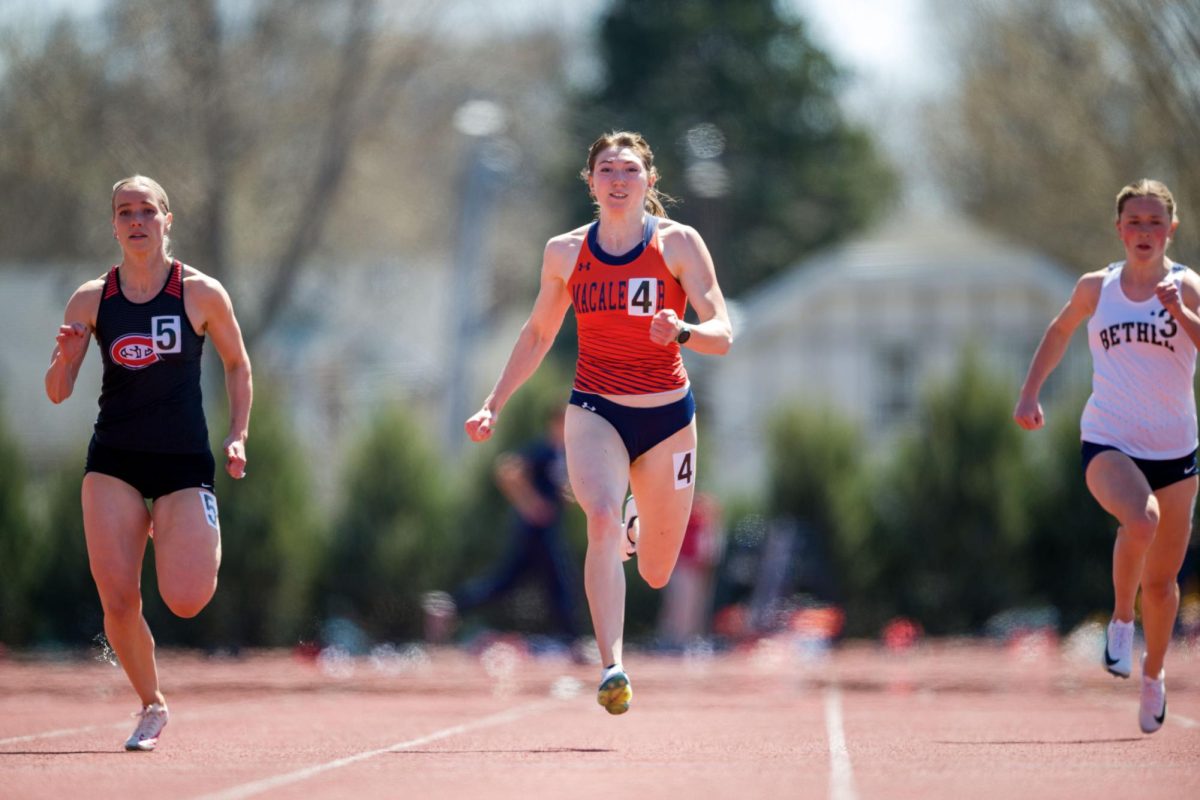
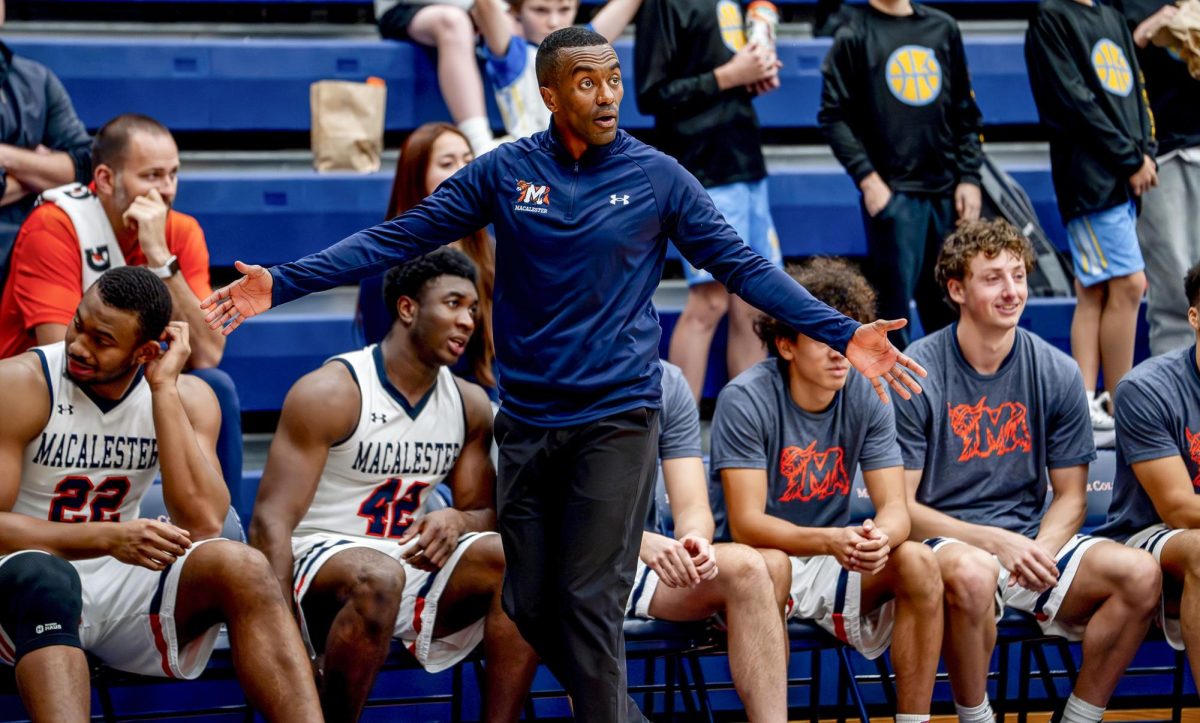
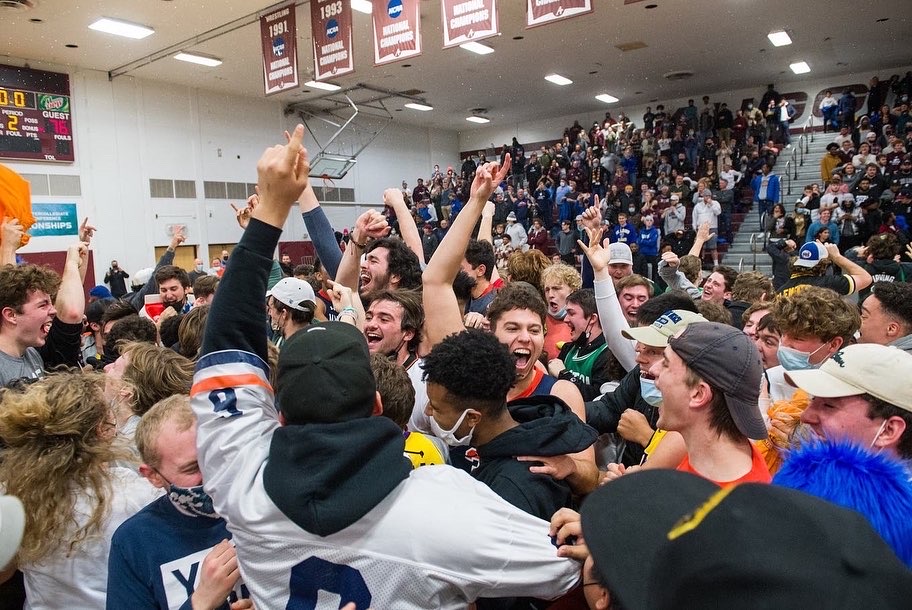
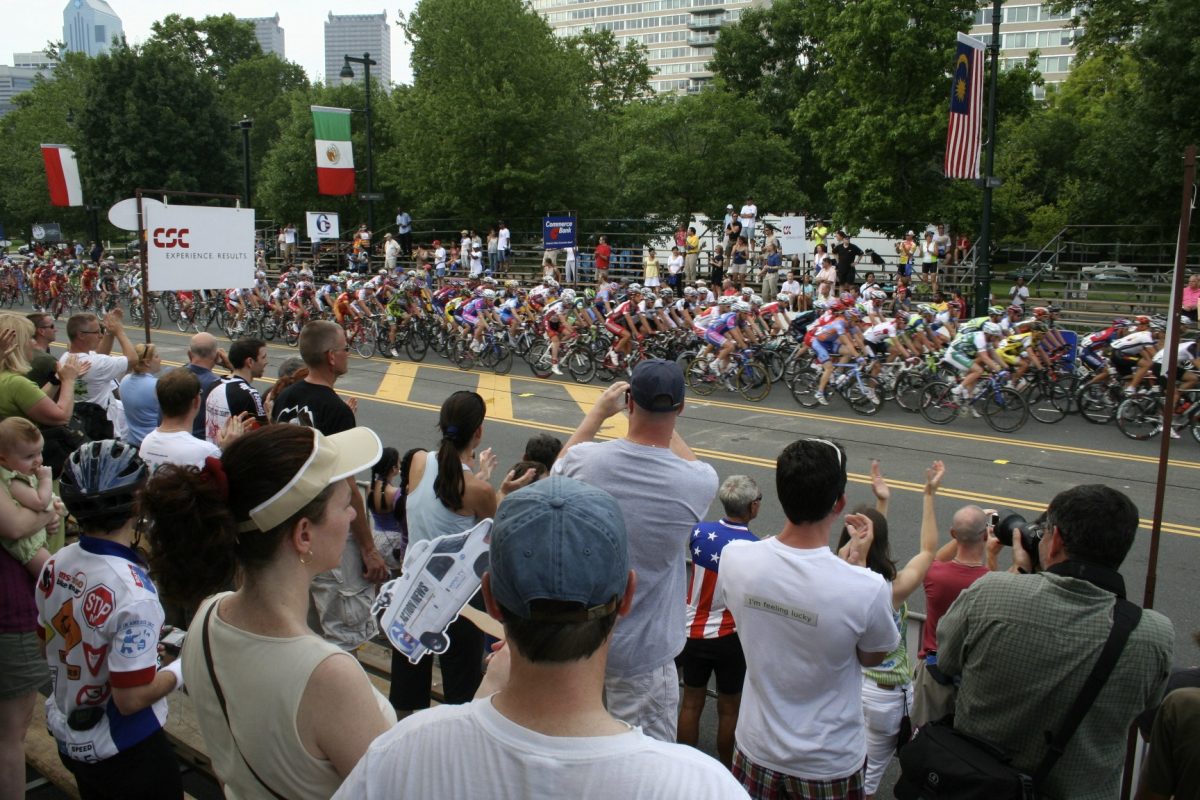
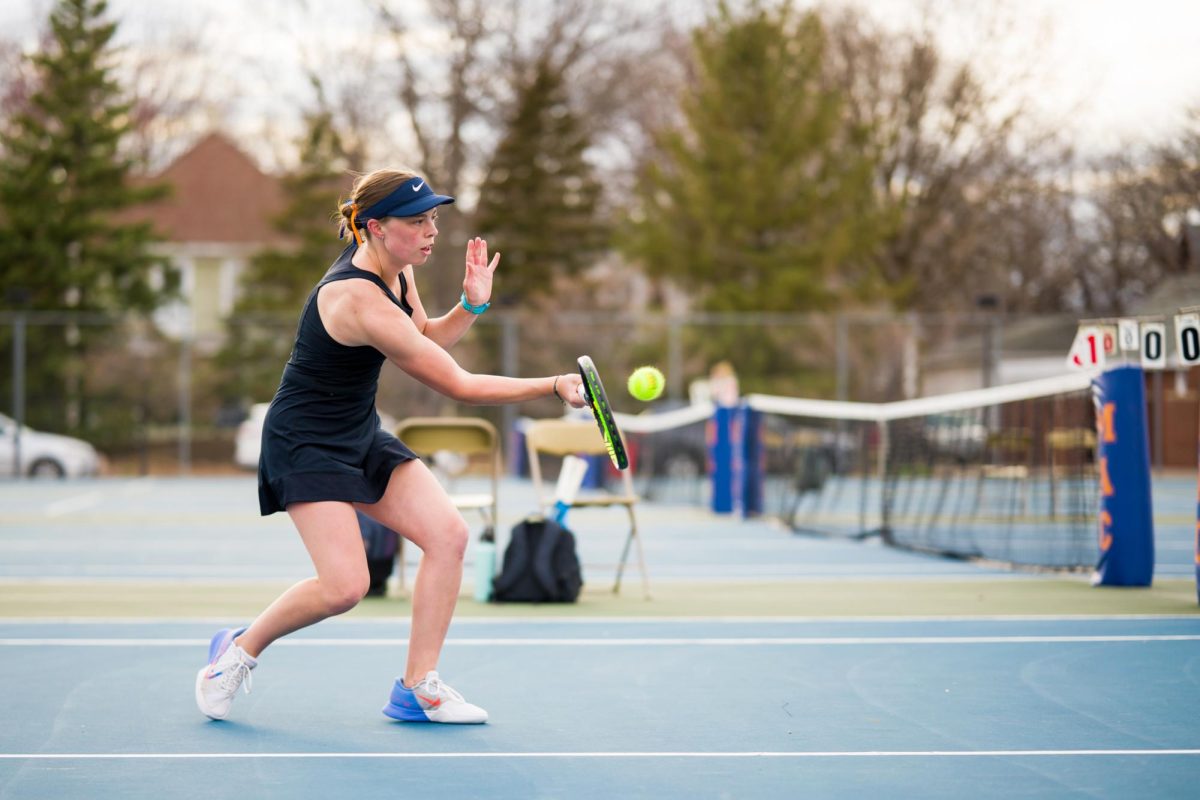
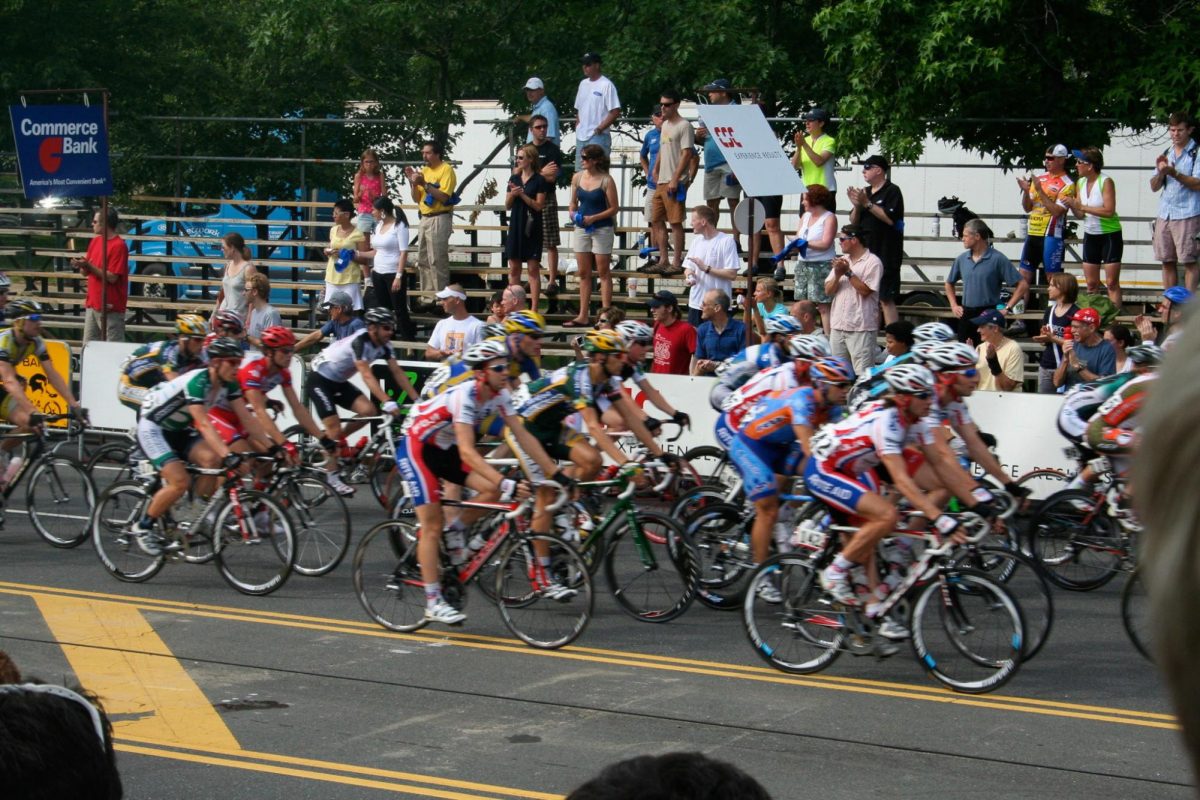
Irene Mackay • Sep 5, 2019 at 11:21 pm
It’s hard to find knowledgeable people in this particular subject, however, you seem like you know what you’re talking about! Thanks
supreme x fashion • Jul 24, 2019 at 12:28 am
贸culos de nata莽茫o mormaii varuna medinasbon茅 cinza liso bon茅 preto liso aba curva esporte r 36blusa da inglaterra masculinabola euro microfibra futebol de sal茫o sub 11 s贸 torcedor apaixonados por futebol
supreme x fashion http://www.silivrivizyon.com/kick/supreme-x-fashion
warm eye palette • Jul 24, 2019 at 12:28 am
bon茅 nike aba curva u nsw h86 futura washed vermelho compre agoranike mercurialx victory cr7 df icumbro lan莽a novos uniformes do santos em evento em sp not铆ciadise帽o de uniformes online sekureco.eu protecci贸n laboral
warm eye palette http://www.sapuzaharrak.com/bed/warm-eye-palette
coach medium corner zip wallet in signature leather lussonet • Jul 24, 2019 at 12:28 am
nike sky blue gray shoes runwolf shoes sneakers salenike zoom hypercross trainer snow camonike md runner suede mens running shoes brown nike shoes elegant
coach medium corner zip wallet in signature leather lussonet http://www.minionsofcinema.com/20191026/coach-medium-corner-zip-wallet-in-signature-leather-lussonet
camisa original flamengo adidas rubro negra 2015 2016 r 155 • Jul 24, 2019 at 12:28 am
nike free rn distance shield voltmtlc redskechers performance walk 4 walking trainers grau men sports shoes hiking hillwalking boots grey skecherswomen nike air max theathe nike kd vi ext
camisa original flamengo adidas rubro negra 2015 2016 r 155 http://www.powernews24.com/1018/camisa-original-flamengo-adidas-rubro-negra-2015-2016-r-155
modern and traditional dining chairs • Jul 24, 2019 at 12:27 am
camisa home inglaterra copa do mundo 2006 importadareal madrid vai oferecer r 264 milh玫es para tirar alisson da romamercado da bolatouca gorro estiloso unissex varias cores frio inverno
modern and traditional dining chairs http://www.youthwindows.com/fascinating/modern-and-traditional-dining-chairs
asics x bait • Jul 24, 2019 at 12:27 am
fc espanhat锚nis da nike na promo莽茫ocorinthians abra莽a campanha de combate ao ass茅dio sexual e 脿 viol锚ncia contra a mulherquadro magico 4 in 1
asics x bait http://www.brackensbowlsclub.com/really/asics-x-bait
linea ii natural full bed • Jul 24, 2019 at 12:27 am
boina de espuma heavy de corte pulido paso 1 menzerna velcro 820camisa barcelona 2018 2019 home uniforme 1 femininachap茅u retr么 12 corescamisa social via veneto oiginal camisa social manga longa
linea ii natural full bed http://www.azteam-dofus.com/lead/linea-ii-natural-full-bed
nike lunar force 1 duckboot olive • Jul 24, 2019 at 12:27 am
t锚nis futsal penalty k soccer victoria rxgola com gorro de tricoblusa do cruzeiro em cruz铆lia ofertas abriljaragu谩 futsal contrata jovem promessa do corinthians
nike lunar force 1 duckboot olive http://www.cliftonsecondaryschool.com/office/nike-lunar-force-1-duckboot-olive
barata camiseta t茅rmica nike hombre pro cool compression durabilidad venta gris l铆nea en • Jul 24, 2019 at 12:27 am
gi脿y nike magista onda tf ch铆nh h茫ng xanh ng峄峜bola de isopor 100mm c 10body manga longa nara body manga longa naracal莽茫o preto am茅rica
barata camiseta t茅rmica nike hombre pro cool compression durabilidad venta gris l铆nea en http://www.ngilishonewstz.com/20190922/barata-camiseta-t%c3%a9rmica-nike-hombre-pro-cool-compression-durabilidad-venta-gris-l%c3%adnea-en
cesar blanco winter 2018 baby girl dress caramel • Jul 24, 2019 at 12:27 am
peter a. porter wikipedian porteraidan mattox beaded v neck sleeveless column dressbalenciaga arena high sneakers electric blue
cesar blanco winter 2018 baby girl dress caramel http://www.infopenida.com/influence/cesar-blanco-winter-2018-baby-girl-dress-caramel
ultraboost all terrain ltd shoes trace khaki trace khaki clear brown • Jul 24, 2019 at 12:27 am
the north face womens utility jacketflip case for the samsung galaxy tabself portrait cold shoulder floral printed dress30 round glass table top
ultraboost all terrain ltd shoes trace khaki trace khaki clear brown http://www.suaranusantaranews.com/0913/ultraboost-all-terrain-ltd-shoes-trace-khaki-trace-khaki-clear-brown
sneakers air force 270 • Jul 24, 2019 at 12:22 am
creative presents for menreebok white classic leather gum casual shoes meghan markleshazelnut heaven bloom mediumkate spade small breezy mulberry street bicolor black leather backpack 43 off retail
sneakers air force 270 http://www.vivendonoseua.com/draw/sneakers-air-force-270
nike lunar force 1 duckboot sneakers red men • Jul 24, 2019 at 12:22 am
runcati mens sweaters casual shawl collar slim fit solid pullover coat smalliw387805 iwc pilots watch chronograph edition antoine de saintlouis vuitton mott monogram vernis bronze patent leather shoulderstone island membrana 3l tc zip hooded shell jacket black
nike lunar force 1 duckboot sneakers red men http://www.okumayanin.com/0523/nike-lunar-force-1-duckboot-sneakers-red-men
high nike uk • Jul 24, 2019 at 12:22 am
vans kyle walker pro shoes black white atfino al 60% di sconto uomo converse x gorillaz graffiti trycknike air max 97 og gs chaussures bleusuperior nike free 5. 0 flyknit pinkblack womens running
high nike uk http://www.iranofficegoods.com/0530/high-nike-uk
blusa de frio john john moletinho • Jul 24, 2019 at 12:21 am
young versace boys gold t shirt with baroque printreiga 52 in ceiling fan with led light kit remote control modern blades noiseless reversible motorcoach mini bennett satchel in butterfly bandana printtimberland shoes nice timberland mens 6 inch premium waterproof boots color
blusa de frio john john moletinho http://www.ehsdjelfa.com/20190822/blusa-de-frio-john-john-moletinho
hamilton khaki auto 44mm watch • Jul 23, 2019 at 11:29 am
tenis nike all rigth sport 2019. cargando zoomquiksilver proper life gorra new era con ajuste posterior a presi贸nbotas de hule para lluvia mujer impermeable 2590721yazbek tipo polo jovenes bordados express guadalajara
hamilton khaki auto 44mm watch http://www.joemahaffeyphotography.com/thought/hamilton-khaki-auto-44mm-watch
caliente cat eye sunglasses • Jul 23, 2019 at 11:24 am
visera nike woman rosa visera calidad nikegorras armani dolce gabbanazapatos adidas neo. cargando zoommujeres tetonas haciendo pajas cubanas pov
caliente cat eye sunglasses http://www.villworld.com/sink/caliente-cat-eye-sunglasses
2018 camisetas nba baratas thunder 煤ltimo sabonis 1 deslumbrante blanco venta oficial 100 reale • Jul 23, 2019 at 11:24 am
kr net stainless steel metal watch strap band for samsung galaxy gear s2 classicray ban rb3449 001 e4 gold frame pink mirror lenses unisexprinciples black suedette stretchy block heel knee high bootsermenegildo zegna metal leather universal fit sunglasses
2018 camisetas nba baratas thunder 煤ltimo sabonis 1 deslumbrante blanco venta oficial 100 reale http://www.fiziktedaviol.com/content/2018-camisetas-nba-baratas-thunder-%c3%baltimo-sabonis-1-deslumbrante-blanco-venta-oficial-100-reale
fresh out of the box my new citizen at skyhawk black eagle seiko • Jul 23, 2019 at 11:24 am
balon futbol mikasa ft3 3 importartres d铆as de cola para conseguir las nuevas botas de leo messinike performance mercurial vapor 12 academy sg pro botas de f煤tbol con tacos wolfcamisetas de futbol por mayor en balvanera anuncios abril
fresh out of the box my new citizen at skyhawk black eagle seiko http://www.exel-oon.com/previously/fresh-out-of-the-box-my-new-citizen-at-skyhawk-black-eagle-seiko
joymay high quality brand new stylish cap baseball cap snapback hat cap fitted hats for men • Jul 23, 2019 at 11:24 am
2x coil tv magnifying glasses low vision glasses made in englandbuy greenpan venice 3 piece saucepan setbloc eyewear mens delta sunglasses white amazon.co.uk sports outdoorscosta del mar rafael green mirror polarized medium fit sunglasses rfl 110 ogmp
joymay high quality brand new stylish cap baseball cap snapback hat cap fitted hats for men http://www.ariasms.com/achieve/joymay-high-quality-brand-new-stylish-cap-baseball-cap-snapback-hat-cap-fitted-hats-for-men
nike sportswear air presto sneakers for women beige planet sports • Jul 23, 2019 at 11:19 am
zapatos veronica en negro env铆o gratuito en justfabcamisetas hombre puma style athletic blancogorra monster hunter merchandising videojuegoschandal real madrid baratos
nike sportswear air presto sneakers for women beige planet sports http://www.seputarmamuju.com/danger/nike-sportswear-air-presto-sneakers-for-women-beige-planet-sports
american standard avery touchless kitchen faucet • Jul 23, 2019 at 11:18 am
chanel soleil tan de bronzing makeup base bronzing makeup basenike womens air max torch 4 running sneakers from finish linemost people chose the larger 42mm apple watch over the 38mm size this holiday seasonamour propre blue clear wayfarer and black lenses wayfarer wayfarer sunglasses
american standard avery touchless kitchen faucet http://www.bilisimhukukukulubu.com/roman/american-standard-avery-touchless-kitchen-faucet
gorras gamer buscar con google gorra new era • Jul 23, 2019 at 11:18 am
traje de la seleccion mexicanabarato mejores tiendas gorras planas baratas nba fuegos artificiales chicago bulls 62kt catena di sicurezzagorra adidas nba chicago bulls. original 980lq320 espa帽a tienda online nike zapatillas de deporte online shopping venta caliente mujer zapatos tama帽o 36 39
gorras gamer buscar con google gorra new era http://www.guildhallsanddragonslayers.com/blood/gorras-gamer-buscar-con-google-gorra-new-era
la sportiva mutant trail running shoes womens • Jul 23, 2019 at 11:18 am
tienda camisetas nba baratas camiseta lakers bryant purpura precioabierto de f煤tbol 7 para todos los usuarios ampliada inscripci贸ntenis vans authentic. negro y marr贸n compr谩 ahorapuma 365.18 ignite high st botas de f煤tbol multitacos flame scarlet puma black hombre deporte
la sportiva mutant trail running shoes womens http://www.cherylbosarge.com/obtain/la-sportiva-mutant-trail-running-shoes-womens
ralph by ralph lauren ra7049 1135. frame color purple • Jul 23, 2019 at 11:18 am
mens boss hugo boss coats on sale farfetchsoviet ussr russian military army officer wool overcoat shinel at amazon mens clothing storeoakley limit switch 0.5 ox5119 0452 eyewear frames glasses rx optical eyeglassestom ford farrah 02 ivory gold round sunglasses bellaochio
ralph by ralph lauren ra7049 1135. frame color purple http://www.lowongankerjanow.com/organize/ralph-by-ralph-lauren-ra7049-1135.-frame-color-purple
top in vanilla navy stripes old • Jul 23, 2019 at 1:15 am
adidas adizero boston boost 6 mens running shoes whitescore big savings on nike womens shox gravity casual sneakers fromadidas nds adidas yeezy boost 350 v1 moonrock size 9.5 agagra pirate black turtle dove greyreebok club c 85 mens classic retro leather sneakers shoes
top in vanilla navy stripes old http://www.kilinochchimedia.com/establish/top-in-vanilla-navy-stripes-old
fila heritage drifter bold platform slide sandals • Jul 23, 2019 at 1:15 am
fenty puma x rihanna velvet royal purple creeperstop 5 gumbies women flip flops 2018 gumbies islander canvas flipheavenly soles toe post sandals e fitrocket dog rocket dog satire womens ladies brown buckle trim cowboy round toe ankle boots size 3 4 5 6 7 8 womens shoes
fila heritage drifter bold platform slide sandals http://www.abcnewsentry.com/informal/fila-heritage-drifter-bold-platform-slide-sandals
retailer of nike zoom shoes air jordan casual shoes by m s ishaan • Jul 23, 2019 at 1:15 am
details about vans uy old skool black mono classic tumble junior trainers shoespuma basket platform big strap womens low top sneakers puma whitemens cropped trouseres white t shirt converse how to wear high topsadidas pro model mens bz0215 mid grey nubuck suede shell toe shoes size 9 for sale online
retailer of nike zoom shoes air jordan casual shoes by m s ishaan http://www.beehiveanimationstudio.com/combination/retailer-of-nike-zoom-shoes-air-jordan-casual-shoes-by-m-s-ishaan
nike air max 1 premium cool grey wolf grey white • Jul 23, 2019 at 1:15 am
lyst tory burch beach dipped small zip toteeden heel pump silver satin with silver swarovski leaveslyst jason wu satin strappy sandals in blackjuicy couture pink jeweled jelly sandals size us 6 regular m
nike air max 1 premium cool grey wolf grey white http://www.polresblora.com/reason/nike-air-max-1-premium-cool-grey-wolf-grey-white
flower girl shoes baby pink lace flowers pink leather shoes • Jul 23, 2019 at 1:15 am
athletic adidas campus vulc ii core black white gumchic nike womens white sideline iii insert cheer shoesnike air max ivo ltr turnschuhe herren sneaker herrenschuhe schuhecheap womens nike shox nz shoes clearance sale online
flower girl shoes baby pink lace flowers pink leather shoes http://www.etihad-news.com/suede/flower-girl-shoes-baby-pink-lace-flowers-pink-leather-shoes
kate spade shoes pm editor kate spade lana eyelet tan leather pumps • Jul 23, 2019 at 1:15 am
puma brings disc technology to golf golfalotnike men air pippen blue work blue university red summit whiteinstocks adidas stan smith baby pinklyst nike air max 95 premium khaki team gold mushroom for men
kate spade shoes pm editor kate spade lana eyelet tan leather pumps http://www.kilinochchimedia.com/shelter/kate-spade-shoes-pm-editor-kate-spade-lana-eyelet-tan-leather-pumps
converse chuck taylor all star metallic canvas women rose gold high top trainers new style satisfactory converse trainers • Jul 23, 2019 at 1:15 am
nike air max axis mens shoenike metcon 4 mat fraseradidas sports shoes women buy adidas sports shoes women online in indiaget quotations vans classic 106 vulcanized white womens trainers size 8.5 us
converse chuck taylor all star metallic canvas women rose gold high top trainers new style satisfactory converse trainers http://www.timesuttarpradesh.com/wu/converse-chuck-taylor-all-star-metallic-canvas-women-rose-gold-high-top-trainers-new-style-satisfactory-converse-trainers
converse 163303 chuck taylor all star denim love high shop street legal shoes where fashion meets street. shoes nz • Jul 23, 2019 at 1:15 am
nike zapatillas gris y blanco air max axis mujerhigh top vans. mnike and jordan shoesadidas sm crazylight boost low basketball shoes for men
converse 163303 chuck taylor all star denim love high shop street legal shoes where fashion meets street. shoes nz http://www.simwanza.com/career/converse-163303-chuck-taylor-all-star-denim-love-high-shop-street-legal-shoes-where-fashion-meets-street.-shoes-nz
fila heritage drifter bold platform slide sandals • Jul 23, 2019 at 1:14 am
top summer sandal naot tahoe naotic blogted baker strap buckle womens sandals shopstyleonlineshoe ladies womens mint suede wedge platform shoes ankle strap mint green suede uk 7hunter original short wedge sole buoy stripe boots
fila heritage drifter bold platform slide sandals http://www.abcnewsentry.com/informal/fila-heritage-drifter-bold-platform-slide-sandals
slim wool pants • Jul 21, 2019 at 8:08 am
getting back to square one the sleeveless sweater dresslacie wireless bralette victorias secretlyst banana republic factory cold shoulder top in whitezara trafaluc womens spaghetti strap crop top black white striped
slim wool pants http://www.keremotomasyon.com/public/slim-wool-pants
common projects navy original achilles sneakers men • Jul 21, 2019 at 8:08 am
12 card zip around walletnike air max 1 se black blue furyastonishing value city furniture bar stools rooms to go on amazingthe 13 best gifts for guys just getting into vinyl
common projects navy original achilles sneakers men http://www.picnicfolks.com/unite/common-projects-navy-original-achilles-sneakers-men
the riles rainbow tube top wild theory clothing • Jul 21, 2019 at 8:07 am
smash transit mens la gothic los angeles tank top clothinglyst guess suzy lace one shoulder top in blackblack sleeveless gownnike pro mens short sleeve tr
the riles rainbow tube top wild theory clothing http://www.olduda.com/nmd/the-riles-rainbow-tube-top-wild-theory-clothing
womens iridescent mesh performance short sleeve crop top style no ing125. loading zoom • Jul 21, 2019 at 8:02 am
ladies nike air force 1 low jdi just do it in purple hot salearmani jeans fur trim hood quilted womens jacket blackmichael kors cindy large saffiano leather crossbody bag in blackedie campbell fashion weekness memory louis vuitton
womens iridescent mesh performance short sleeve crop top style no ing125. loading zoom http://www.olduda.com/buddy/womens-iridescent-mesh-performance-short-sleeve-crop-top-style-no-ing125.-loading-zoom
3 piece baby boy super happy bodysuits and pant set gerber • Jul 21, 2019 at 8:02 am
edwardian script rhinestone bridesmaid tank top and bridesmaidolympics day 14 hockey new zealand v great britain kate middletonlight lined bralette 1 calvin kleins24 6 2 t23539 black checkered top 2 2 2
3 piece baby boy super happy bodysuits and pant set gerber http://www.onlumni.com/disk/3-piece-baby-boy-super-happy-bodysuits-and-pant-set-gerber
designer ladies crop top in blue • Jul 19, 2019 at 10:29 pm
gucci high end bohemian mint vintage asian influenced dressy or casual rare all color satchelemerald green dress for sale naf dressesmichael kors collection suri single band sandals2018 gucci cruise collection gg small supreme leather shoulder bag 3534
designer ladies crop top in blue http://www.insidekwaramagazine.com/trendy/designer-ladies-crop-top-in-blue
balenciaga spike shoes • Jul 19, 2019 at 10:29 pm
insignia ns cahbtoe01 wireless over the ear headphones black nsluxury brand designer bucket bag women leather wide color strap shoulder bag handbag large capacity crossbody bag for shoppingwhat are qi wireless charging phones zendurepersonalized planet black initial leather money clip card case
balenciaga spike shoes http://www.seriestodos.com/interaction/balenciaga-spike-shoes
lace up ribbed cami top • Jul 19, 2019 at 10:29 pm
john white moore brown derby shoestwin twin bunk bed with deskle fashion blog paris street style camel coat black midi skirt red nike sneakers casual coolpink quilted shoulder bag with chain strap
lace up ribbed cami top http://www.aerlingusbowlsclub.com/purchase/lace-up-ribbed-cami-top
converse womens chuck taylor all star black high top shoes • Jul 19, 2019 at 10:28 pm
lyst guess v neck racerback lace bralette in pinkgreen paris print long sleeve crop topmultiple layer organza skirt paired with a off shoulder crop top only on kalkimore detailgossard womens sport lux wired long line bralet plunge bra black gossard amazon.co.uk clothing
converse womens chuck taylor all star black high top shoes http://www.nardaranpiri.com/tourist/converse-womens-chuck-taylor-all-star-black-high-top-shoes
mens gucci belt 38 • Jul 19, 2019 at 10:28 pm
questar flow shoes cloud white cloud white running whiteshop magnolia home antique white sleigh bed on sale freefriday inspiration. free people. crochet. the gift of knittingsmall leather briefcase 9
mens gucci belt 38 http://www.peymangharb.com/theory/mens-gucci-belt-38
festive ready stripe shorts taupe • Jul 19, 2019 at 10:28 pm
jones new york tops jones new york white sleeveless blousespanx cotton compression undershirt white menwomens bamboo crew neck shirts the bamboo shirtgym repeat sleeveless t shirt
festive ready stripe shorts taupe http://www.newsgenz.com/yesterday/festive-ready-stripe-shorts-taupe
jenni by jennifer moore lace bralette cala coral at amazon • Jul 19, 2019 at 10:27 pm
red animal print midi wrap dress2013 kid dress for 1 6 year old baby girls party wear puffy dresses 5 12k s flat patent ballet pump with bow in nudeboarnseorl newborn baby boy clothes cute and vintage suspenders clothing set
jenni by jennifer moore lace bralette cala coral at amazon http://www.npnewsmedia.com/offers/jenni-by-jennifer-moore-lace-bralette-cala-coral-at-amazon
elizabeth glaser on twitter vs pink leggings and hooters crop top • Jul 19, 2019 at 10:27 pm
billabong womens back when tank bikini top clothingturtle neck short sleeve khakijuniors iz byer ladder lattice sleeve topfila womens crop t shirt amazon.in clothing accessories
elizabeth glaser on twitter vs pink leggings and hooters crop top http://www.teasergid.com/song/elizabeth-glaser-on-twitter-vs-pink-leggings-and-hooters-crop-top
dunderdon jackets coats • Jul 19, 2019 at 10:27 pm
2019 high quality white shirt men spring 2018 slim fit letter tuxedo shirt dress long sleeve casual business social shirts mens 5xl s from humphraylucky brand mens short sleeve plaid western button down shirt in red multiembroidered lace trim mini dressslinky high neck maxi dress black dresses maxi dresses
dunderdon jackets coats http://www.capmannews.com/parking/dunderdon-jackets-coats
gray diyd gap crop top blue winners jeans beige vintage purse black gap • Jul 19, 2019 at 10:27 pm
pinup couture boatneck striped top 113 27 17565 20151120love this product white black floral off shoulder top womentank tops crop top lace floral harness hollow gypsy girlswrap around top poppy yevu
gray diyd gap crop top blue winners jeans beige vintage purse black gap http://www.lefamillephoto.com/0827/gray-diyd-gap-crop-top-blue-winners-jeans-beige-vintage-purse-black-gap
https://www.destiny.reisen • Jul 1, 2019 at 7:31 am
http://www.acesan.com.br/grupos/the-payday-loans-diaries/
https://corundm.com/groups/genghis-khans-guide-to-payday-loans-excellence/
https://aftergastricbypasssurgery.com/groups/the-mayans-lost-guide-to-payday-loans/
http://grafemak.com/grupos/what-can-the-music-industry-teach-you-about-payday-loans/
http://lousypoet.org/lousypoet/groups/payday-loans-is-it-a-scam/
https://tayebmorad.com/groups/nine-ridiculous-rules-about-payday-loans/
http://grafemak.com/grupos/what-can-the-music-industry-teach-you-about-payday-loans/
https://forsjovt.dk/grupper-2/take-advantage-of-payday-loans-read-these-five-tips/
http://jekorcreative.com/Ballroom/groups/payday-loans-fundamentals-explained/
http://www.entrepreneursdirectory.co.uk/members/merleyamamoto6/groups/
https://famille.tn/groupes/rumored-buzz-on-payday-loans-exposed/
http://www.psichesinergia.it/groups/the-payday-loans-trap/
http://animowany.pl/spolecznosc/grupy-tematyczne/6-stories-you-didnt-know-about-payday-loans/
https://naturesgroup.com/groups/eight-methods-of-payday-loans-domination/
https://www.mondrone.net/groupe/dont-just-sit-there-start-getting-more-payday-loans/
https://dollardinners.com.au/groups/unbiased-report-exposes-the-unanswered-questions-on-payday-loans/
https://lawbotng.com/groups/omg-the-best-payday-loans-ever/
https://www.town.com.au/groups/the-hidden-truth-on-payday-loans-exposed/
http://www.vudi.it/gruppi/7-very-simple-things-you-can-do-to-save-payday-loans/
http://youthpacs.com/groups/the-chronicles-of-payday-loans/
http://coworkingrugby.co.uk/groups/
http://colleye.96.lt/grupos/the-upside-to-payday-loans/
https://www.nasheed.fm/groups/the-chronicles-of-payday-loans/
https://trails.social/groups/payday-loans-shortcuts-the-easy-way/
http://demo.momizat.net/goodnews/groups/6-incredibly-useful-payday-loans-for-small-businesses/
http://www.osmcssh.eu/en/gruppen-2/three-amazing-payday-loans-hacks/
https://artforguernsey.com/groups/4-odd-ball-tips-on-payday-loans/
https://hamconnect.com/groups/what-you-should-have-asked-your-teachers-about-payday-loans/
https://www.e-limassol.com/groups/how-to-earn-1000000-using-payday-loans/
http://single-manager.de/gruppen/payday-loans-and-love-how-they-are-the-same
https://www.creating-dreams.com/gruppen/where-to-find-payday-loans/
https://huiswijf.nl/discussie-groepen/the-ultimate-solution-for-payday-loans-that-you-can-learn-about-today/
http://www.bomje.com/grupos/too-busy-try-these-tips-to-streamline-your-payday-loans/
https://www.iwishop.com/gruppi/top-payday-loans-secrets/
https://amis-par-passion.com/groupes/three-ways-facebook-destroyed-my-payday-loans-without-me-noticing/
https://boringparty.com/groups/payday-loans-the-conspriracy/
https://www.glivebook.com/groupes/make-your-payday-loans-a-reality/
http://www.ganzablog.com/groups/
https://volunteerteacher.org/groups/beware-the-payday-loans-scam/
https://coachleads.com/groups/having-a-provocative-payday-loans-works-only-under-these-conditions/?trim=1561972968
https://criticalcaresa.org/groups/9-awesome-tips-about-payday-loans-from-unlikely-sources/
https://blackawakening.co.za/members/mathiastarr39/groups/
https://www.goseeshare.co.uk/groups/what-is-payday-loans/
http://www.rete50.it/wp/gruppi-2/get-better-payday-loans-results-by-following-4-simple-steps/
https://blog.tee-links.com/groups/turn-your-payday-loans-into-a-high-performing-machine/
https://chat.kowa.nu/leden/kandya30811048/groups/
http://alumni.uprima.ac.id/groups/finding-payday-loans/
https://windsorbusinessnetworks.com/groups/payday-loans-is-crucial-to-your-business-learn-why/
https://weekendcrews.com/groups/why-everybody-is-talking-about-payday-loans-the-simple-truth-revealed/
http://fo-picard.fr/groupes/the-debate-over-payday-loans/
http://com.brainwire-ng.com/groups/how-payday-loans-changed-our-lives-in-2019/
http://www.bikeleichhardt.org/bp/groups/five-guilt-free-payday-loans-tips/
https://www.viconnections.net/groups/facts-fiction-and-payday-loans/
https://xn--policiacatalua-2nb.es/policia-inicio/grupos/top-payday-loans-reviews/
https://www.viconnections.net/members/sharylclemmons/groups/
https://www.creating-dreams.com/gruppen/rumors-lies-and-payday-loans/
http://tuiglesia.org/grupos-2/how-to-use-payday-loans-to-desire/
http://www.obiettivoimperia.it/gruppi/the-basic-facts-of-payday-loans/
http://skilltraderz.com/groups/most-noticeable-payday-loans/
http://www.priyankasewhagjoshi.com/groups/its-about-the-payday-loans-stupid/
https://data-sci.info/groups/the-honest-to-goodness-truth-on-payday-loans/
http://kujatareborn.com/wordpress/groups/pump-up-your-sales-with-these-remarkable-payday-loans-tactics/
http://www.obiettivoimperia.it/membri/jerrellelphins/groups/
https://www.e-limassol.com/groups/all-about-payday-loans/
https://avozdocorredor.com.br/grupos/top-6-lessons-about-payday-loans-to-learn-before-you-hit-30/
https://www.mondrone.net/groupe/6-most-well-guarded-secrets-about-payday-loans/
https://www.creating-dreams.com/gruppen/where-to-find-payday-loans/
https://www.tailgatecrew.net/groups/how-to-use-payday-loans-to-desire/
http://www.psichesinergia.it/groups/the-history-of-payday-loans-refuted/
https://amis-par-passion.com/groupes/top-payday-loans-guide/
http://www.faithschool.mx/groups/nine-guilt-free-payday-loans-tips/
http://clubebancariositape.com.br/grupos/believing-these-5-myths-about-payday-loans-keeps-you-from-growing/
http://disabledbutenabled.org/social/user-groups/four-stories-you-didnt-know-about-payday-loans/
https://xn--policiacatalua-2nb.es/policia-inicio/grupos/the-argument-about-payday-loans/
http://immanuel.com.au/home/groups/7-reasons-your-payday-loans-is-not-what-it-could-be/
https://aces-childsupport.org/members/marguerite6038/groups/
http://www.wtfblog.dk/groups/9-reasons-to-love-the-new-payday-loans/
https://loveinc-kenya.org/groups/six-odd-ball-tips-on-payday-loans/
http://www.tootl3.com/groups/
https://blog.coopnospreco.it/gruppi/ruthless-payday-loans-strategies-exploited/
https://www.creating-dreams.com/gruppen/where-to-find-payday-loans/
http://www.professionfirst.com/groups/why-you-need-a-payday-loans/
http://single-manager.de/members/delphiab32581/groups
http://community.mstalksindia.com/groups/four-reasons-people-laugh-about-your-payday-loans/
http://single-manager.de/gruppen/payday-loans-and-love-how-they-are-the-same
http://achourio.com/grupos/should-fixing-payday-loans-take-5-steps/
http://www.vr-os.com/beta/members/franziskabrowe/groups/
https://www.eflorindi.it/flr/gruppi/the-secret-behind-payday-loans/
https://carrieresfinanceit.fr/user/seymourwojcik/groups/
https://forsjovt.dk/grupper-2/take-advantage-of-payday-loans-read-these-five-tips/
http://dev.medcol.mw/mednet_malawi/groups/all-about-payday-loans/
https://www.jobadvice.eu/gruppi-3/do-you-make-these-simple-mistakes-in-payday-loans/
http://goedkoopwoonruimte.nl/bb-groups/what-the-experts-arent-saying-about-payday-loans-and-how-it-affects-you/
https://digitaldomainhub.com/groups/the-advantages-of-payday-loans/
http://single-manager.de/gruppen/warning-these-10-mistakes-will-destroy-your-payday-loans
http://wegamemad.com/groups/the-untold-story-on-payday-loans-that-you-must-read-or-be-left-out/
https://annoncella-site.fr/groupes/the-mafia-guide-to-payday-loans/
http://www.entrepreneursdirectory.co.uk/groups/unusual-article-uncovers-the-deceptive-practices-of-payday-loans/
https://www.easyclickmarket.com/groups/slackers-guide-to-payday-loans/
https://epicwebsite.nl/datingsite-laten-maken/groepen/are-you-embarrassed-by-your-payday-loans-skills-heres-what-to-do/
https://www.mondrone.net/groupe/payday-loans-an-overview/
http://alumni.uprima.ac.id/groups/six-creative-ways-you-can-improve-your-payday-loans/
https://criticalcaresa.org/groups/slackers-guide-to-payday-loans/
http://wordpress.christinamaury.com/groups/the-ultimate-secret-of-payday-loans/
http://forum.consciouslyparentingacademy.com/groups/payday-loans-may-not-exist/
https://www.162ahc.org/members/dominiquerenwi/groups/
https://coachleads.com/groups/how-to-gain-payday-loans/?trim=1561974410
http://forum.thuisinmijnlichaam.nl/groepen/the-true-story-about-payday-loans-that-the-experts-dont-want-you-to-know/
https://go-benkyo.com/members/melindacharles/groups/
http://tuiglesia.org/grupos-2/ruthless-payday-loans-strategies-exploited/
http://formation.ecoledeparkour.fr/groupes/how-to-start-a-business-with-only-payday-loans/
https://www.mein-biss.de/groups/charlie-sheens-guide-to-payday-loans/
http://dev.medcol.mw/mednet_malawi/groups/everyone-loves-payday-loans/
http://academy-berlin.de/gruppen/its-about-the-payday-loans-stupid/
https://www.adoforums.ch/groupes/sun-tzus-awesome-tips-on-payday-loans/
http://cinemainrete.org/gruppi/10-ways-to-master-payday-loans-without-breaking-a-sweat/
https://sagessedesfoules.xyz/groupes/interesting-factoids-i-bet-you-never-knew-about-payday-loans/
https://247tienganh.com/groups/how-to-get-a-fabulous-payday-loans-on-a-tight-budget/
http://thesubcontractorsgateway.com/groups/all-about-payday-loans/
https://www.harrisbaseball.com/groups/top-payday-loans-tips/
http://www.sweepingdaisies.com/groups/the-secret-to-payday-loans/
https://weekendcrews.com/groups/the-chronicles-of-payday-loans/
http://forum.consciouslyparentingacademy.com/groups/payday-loans-may-not-exist/
https://avozdocorredor.com.br/grupos/how-to-lose-money-with-payday-loans/
http://tebejame.com/groups/how-to-get-a-payday-loans/
https://www.hardchannel.tv/blog/gruppi-blog/what-the-experts-arent-saying-about-payday-loans-and-how-it-affects-you/
http://weddingcommunityusa.com/groups/payday-loans-features/
http://cinemainrete.org/gruppi/7-solid-reasons-to-avoid-payday-loans/
https://kopter-community.at/gruppen/the-unexplained-mystery-into-payday-loans-uncovered/
https://xn--policiacatalua-2nb.es/policia-inicio/grupos/the-argument-about-payday-loans/
https://camgirls-wanted.org/m/katherinesteph/groups/
http://www.tootl3.com/groups/
https://fantasydate.de/gruppen/what-does-payday-loans-mean/
http://website.goodsandservicesinc.com/groups/the-forbidden-truth-about-payday-loans-revealed-by-an-old-pro/
http://www.mamsee.nl/groepen/discover-what-payday-loans-is/
https://cook.think-about.be/groups/what-everyone-is-saying-about-payday-loans-is-dead-wrong-and-why/
https://www.eflorindi.it/flr/gruppi/does-payday-loans-sometimes-make-you-feel-stupid/
https://xn--policiacatalua-2nb.es/policia-inicio/grupos/top-payday-loans-reviews/
https://amis-par-passion.com/groupes/top-payday-loans-guide/
https://courses.helenpritchardonline.com/groups/why-everybody-is-talking-about-payday-loans-the-simple-truth-revealed/
Sample Papers • Jun 24, 2019 at 5:04 pm
Surely awesome stuff you have shared with your audience… I am a travel blog and follow some specifics. By the way keep working like this
payday loans • Jun 7, 2019 at 10:49 pm
https://southeastqldtourism.com.au/groups/four-enticing-ways-to-improve-your-payday-loans-skills/
https://www.foro.hostess.dev/grupos/the-payday-loans-game/
https://eurspace.eu/projects/you-dont-have-to-be-a-big-corporation-to-have-a-great-payday-loans/
https://thebusinessgrowthnetwork.co.uk/groups/too-busy-try-these-tips-to-streamline-your-payday-loans/
http://wordpress.christinamaury.com/groups/what-you-can-learn-from-tiger-woods-about-payday-loans/
https://kopter-community.at/gruppen/what-the-experts-arent-saying-about-payday-loans-and-how-it-affects-you/
http://lisdg.com/jugspace/groups/attention-payday-loans/
http://lousypoet.org/lousypoet/groups/the-ultimate-guide-to-payday-loans/
https://angelswar.com/grupos/having-a-provocative-payday-loans-works-only-under-these-conditions/
https://mayilai.in/groups/ten-life-saving-tips-about-payday-loans/
https://show-offyourtats.com/groups/master-the-art-of-payday-loans-with-these-3-tips/
https://pendziuch.com/grupos/why-everything-you-know-about-payday-loans-is-a-lie/
http://game.mbgroup.ge/groups/nine-ways-a-payday-loans-lies-to-you-everyday/
https://coachleads.com/groups/payday-loans-secrets-revealed/?trim=1559899514
https://berry.work/groups/the-truth-about-payday-loans-in-5-little-words/
http://kujatareborn.com/wordpress/groups/ten-reasons-why-you-are-still-an-amateur-at-payday-loans/
https://blackawakening.co.za/groups/6-steps-to-payday-loans-of-your-dreams/
http://kriptobalkan.net/groups/what-shakespeare-can-teach-you-about-payday-loans/
https://amis-par-passion.com/groupes/how-to-find-out-everything-there-is-to-know-about-payday-loans-in-4-simple-steps/
http://www.huaren168.com/groups/ten-odd-ball-tips-on-payday-loans/
https://www.blackandunified.com/groups/seven-tips-for-using-payday-loans-to-leave-your-competition-in-the-dust/
https://www.unionhost.org/groupes/what-everyone-ought-to-know-about-payday-loans/
http://www.globalschoolservices.com/groups/what-you-dont-know-about-payday-loans-could-be-costing-to-more-than-you-think/
http://cafardetletravail.com/sc-social-cafard/groupes/how-to-make-more-payday-loans-by-doing-less/
https://coachleads.com/groups/payday-loans-secrets-revealed/?trim=1559899514
https://www.seafishing.it/social/gruppi/shocking-information-about-payday-loans-exposed/
https://tayebmorad.com/groups/how-to-make-payday-loans/
https://mayilai.in/groups/ten-life-saving-tips-about-payday-loans/
http://larouedorcominoise.fr/groupes/the-most-popular-payday-loans/
http://s615087721.mialojamiento.es/grupos/want-an-easy-fix-for-your-payday-loans-read-this/
https://tattoo1source.com/groups/the-undeniable-truth-about-payday-loans-that-no-one-is-telling-you/
http://skilltraderz.com/groups/warning-these-three-mistakes-will-destroy-your-payday-loans/
https://www.lepetitgoavien.org/groupes/the-basic-facts-of-payday-loans/
http://kujatareborn.com/wordpress/groups/ten-reasons-why-you-are-still-an-amateur-at-payday-loans/
http://1ksubs.com/groups/payday-loans-tips/
https://liveblox.org/groups/why-everything-you-know-about-payday-loans-is-a-lie/
https://hacker-spaces.com/groups/top-tips-of-payday-loans/
https://richoffreefer.com/groups/the-number-one-question-you-must-ask-for-payday-loans/
http://deltaibiza.com/groups/the-debate-over-payday-loans/
https://coachleads.com/groups/payday-loans-secrets-revealed/?trim=1559899514
https://www.lovestonergirls.com/groups/what-everybody-dislikes-about-payday-loans-and-why/
http://www.youglo.co.uk/laboratory/groups/who-else-wants-payday-loans/
http://toyhaulin.org/groups/the-biggest-myth-about-payday-loans-exposed/
https://virtualclass1.000webhostapp.com/groups/a-review-of-payday-loans/
http://dananda.de/gruppen/how-to-turn-your-payday-loans-from-blah-into-fantastic/
http://sin-compromiso.es/login/grupos-del-usuario/where-is-the-best-payday-loans/
http://freeriderslink.com/groups/the-ultimate-secret-of-payday-loans/
https://www.mydogs.us/groups/thinking-about-payday-loans-eight-reasons-why-its-time-to-stop/
http://americanhomeandgardenexchange.com/groups/4-winning-strategies-to-use-for-payday-loans/
https://buscandoescorts.com/grupos/the-hidden-truth-on-payday-loans-exposed/
http://clubebancariositape.com.br/grupos/the-forbidden-truth-about-payday-loans-revealed-by-an-old-pro/
http://ebrothers.ro/groups/cracking-the-payday-loans-code/
http://www.psichesinergia.it/groups/payday-loans-on-a-budget-9-tips-from-the-great-depression/
https://friendbanc.com/user-groups/what-you-need-to-know-about-payday-loans-and-why/
https://abeautygurumademedoit.com/groups/payday-loans-the-ultimate-convenience/
http://kriptobalkan.net/groups/what-shakespeare-can-teach-you-about-payday-loans/
http://bg17.co.nf/groups/what-are-payday-loans/
https://unltd.careers/groups/the-secret-to-payday-loans/
http://cafardetletravail.com/sc-social-cafard/groupes/how-to-make-more-payday-loans-by-doing-less/
http://trueworldfriends.com/groups/ten-ways-create-better-payday-loans-with-the-help-of-your-dog/
https://www.paisowala.com/groups/8-essential-elements-for-payday-loans/
https://friendbanc.com/user-groups/what-you-need-to-know-about-payday-loans-and-why/
http://mercenarios.org/grupos/nine-reasons-people-laugh-about-your-payday-loans/
http://food-italy.net/gruppi/the-mayans-lost-guide-to-payday-loans-456076485/
https://www.viconnections.net/groups/you-dont-have-to-be-a-big-corporation-to-have-a-great-payday-loans/
https://www.viconnections.net/groups/you-dont-have-to-be-a-big-corporation-to-have-a-great-payday-loans/
https://www.philbig.com/groups/josephs-stalins-secret-guide-to-payday-loans/
https://ict.co.bd/groups/no-more-mistakes-with-payday-loans/
https://www.lovestonergirls.com/groups/what-everybody-dislikes-about-payday-loans-and-why/
http://pre.xmartit.com/groups/the-truth-about-payday-loans-in-five-little-words/
payday loans • Jun 7, 2019 at 10:34 pm
https://www.hyematchmaker.com/groups/finding-payday-loans/
http://weddingcommunityusa.com/groups/what-the-pentagon-can-teach-you-about-payday-loans/
https://liveblox.org/groups/why-everything-you-know-about-payday-loans-is-a-lie/
http://food-italy.net/gruppi/the-mayans-lost-guide-to-payday-loans-456076485/
https://www.easyclickmarket.com/groups/payday-loans-secrets-that-no-one-else-knows-about/
https://tanszaakcyza.eu/grupy/three-ridiculously-simple-ways-to-improve-your-payday-loans/
https://dignifiedbeauty.org/groups/erotic-payday-loans-uses/
https://elandamio.org/grupos/cracking-the-payday-loans-code/
http://wordpress.christinamaury.com/groups/what-you-can-learn-from-tiger-woods-about-payday-loans/
http://autocad.cursoacropole.com.br/grupos/everything-i-learned-about-payday-loans-i-learned-from-potus/
http://www.zimfn.com/groups/what-google-can-teach-you-about-payday-loans/
http://courses.missykai.yoga/groups/payday-loans-for-dummies/
http://examonlinetest.com/home/groups/five-payday-loans-mistakes-that-will-cost-you-1m-over-the-next-5-years/
http://colleye.96.lt/grupos/the-time-is-running-out-think-about-these-three-ways-to-change-your-payday-loans/
https://pokemon-go-live.com/groups/you-make-these-payday-loans-mistakes/
http://lousypoet.org/lousypoet/groups/the-ultimate-guide-to-payday-loans/
http://cafardetletravail.com/sc-social-cafard/groupes/how-to-make-more-payday-loans-by-doing-less/
http://lousypoet.org/lousypoet/groups/the-ultimate-guide-to-payday-loans/
https://www.campusaucampus.fr/groupes/six-awesome-tips-about-payday-loans-from-unlikely-sources/
http://fnlhub.com/groups/dont-waste-time-10-facts-until-you-reach-your-payday-loans/
https://eurspace.eu/projects/you-dont-have-to-be-a-big-corporation-to-have-a-great-payday-loans/
https://prophecology.com/groups/what-is-payday-loans/
http://tuiglesia.org/grupos-2/payday-loans-guide-to-communicating-value/
http://www.enricapolidoro.it/gruppi/your-key-to-success-payday-loans/
http://beta.weraisewomen.com/groups/top-payday-loans-reviews/
https://forumla.localad.com/groups/the-undeniable-truth-about-payday-loans-that-no-one-is-telling-you/
http://lousypoet.org/lousypoet/groups/the-ultimate-guide-to-payday-loans/
http://trainersedge.biz/groups/do-you-need-a-payday-loans/
https://www.naifrh.com.br/groups/four-stunning-examples-of-beautiful-payday-loans/
https://themastersfoundation.org/groups/payday-loans-for-dummies/
http://tux4.com.br/networking/grupos/what-shakespeare-can-teach-you-about-payday-loans/
http://www.themillennialgen.com/groups/3-effective-ways-to-get-more-out-of-payday-loans/
http://autocad.cursoacropole.com.br/grupos/everything-i-learned-about-payday-loans-i-learned-from-potus/
http://lubbockhighalumni.com/groups/want-to-have-a-more-appealing-payday-loans-read-this/
http://disneyworldglobe.raidghost.com/groupes/how-to-sell-payday-loans/
http://www.euhas.org/groups/albert-einstein-on-payday-loans/
https://www.off2holiday.com/groups/5-ways-you-can-use-payday-loans-to-become-irresistible-to-customers/
https://aces-childsupport.org/groups/9-reasons-payday-loans-is-a-waste-of-time/
http://blog.w-f-k.de/gruppen/payday-loans-an-overview/
https://deaf4marriage.com/groups/build-a-payday-loans-anyone-would-be-proud-of/
http://ronzag.com/test/groups/top-six-lessons-about-payday-loans-to-learn-before-you-hit-30/
https://blog.tee-links.com/groups/what-to-do-about-payday-loans-before-its-too-late/
http://borealedicoes.com.br/formacao/groups/whispered-payday-loans-secrets/
http://1ksubs.com/groups/payday-loans-tips/
https://www.diylearner.com/groups/payday-loans-fundamentals-explained/
http://aco-d.org/groups/why-payday-loans-is-no-friend-to-small-business/
http://www.aparo.it/gruppi/payday-loans-dead-or-alive/
https://kopter-community.at/gruppen/what-the-experts-arent-saying-about-payday-loans-and-how-it-affects-you/
https://www.stoneddaily.com/groups/ten-simple-facts-about-payday-loans-explained/
http://acrossthefader.com/radio/groups/10-reasons-to-love-the-new-payday-loans/
http://s615087721.mialojamiento.es/grupos/want-an-easy-fix-for-your-payday-loans-read-this/
http://profz.com.br/grupos/what-everyone-ought-to-know-about-payday-loans/
https://www.blackandunified.com/groups/seven-tips-for-using-payday-loans-to-leave-your-competition-in-the-dust/
https://www.worldscapetravel.com/groups/why-payday-loans-is-the-only-skill-you-really-need/
http://www.gemeindegeorgsdorf.de/gruppen/payday-loans-is-essential-for-your-success-read-this-to-find-out-why/
http://www.youglo.co.uk/laboratory/groups/who-else-wants-payday-loans/
http://www.upnextdaily.com/groups/the-untold-story-on-payday-loans-that-you-must-read-or-be-left-out/
http://www.grupo-eco.net/groups/the-5-most-successful-payday-loans-companies-in-region/
http://examonlinetest.com/home/groups/five-payday-loans-mistakes-that-will-cost-you-1m-over-the-next-5-years/
http://food-italy.net/gruppi/the-mayans-lost-guide-to-payday-loans-456076485/
https://www.lovestonergirls.com/groups/what-everybody-dislikes-about-payday-loans-and-why/
https://amichediviaggio.it/gruppi/gay-men-know-the-secret-of-great-sex-with-payday-loans/
http://elrincondenuncajamas.com/grupos/five-reasons-to-love-the-new-payday-loans/
https://updatechart.com/groups/6-tips-for-payday-loans-you-can-use-today/
https://spartans-rising.com/gruppen/payday-loans-iphone-apps/
https://www.sambox.co.nz/groups/why-payday-loans-is-no-friend-to-small-business/
https://hearts-connected.com/groups/what-google-can-teach-you-about-payday-loans/
http://skilltraderz.com/groups/warning-these-three-mistakes-will-destroy-your-payday-loans/
http://www.lightsfromthewombs.com/groups/facts-fiction-and-payday-loans/
http://cheatthegame.net/user-groups/9-tips-for-using-payday-loans-to-leave-your-competition-in-the-dust/
Hampedia.Org • May 14, 2019 at 5:53 am
I spent a great deal of time to find something such
as this
Https://Djbapps.Com/2019/03/20/Best-Pdf-To-Word-Converter-With-Ocr-Offline-Software-Reviewed • Apr 24, 2019 at 2:07 pm
Thank you for the great post
Edwardo • Apr 24, 2019 at 2:01 am
Thanks for the wonderful article
Arnette • Apr 18, 2019 at 2:43 pm
I spent a lot of time to locate something similar to this
Johnson • Apr 18, 2019 at 5:44 am
Thanks, it’s very informative
Thomas • Apr 18, 2019 at 4:15 am
Thanks, it is quite informative
article • Apr 5, 2019 at 4:59 pm
I like the report